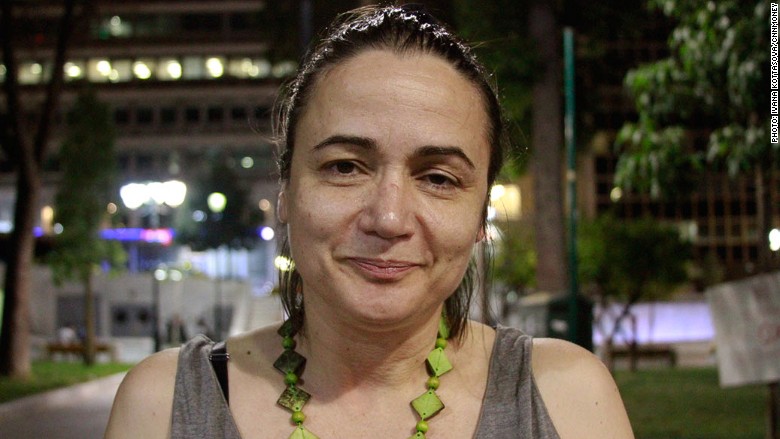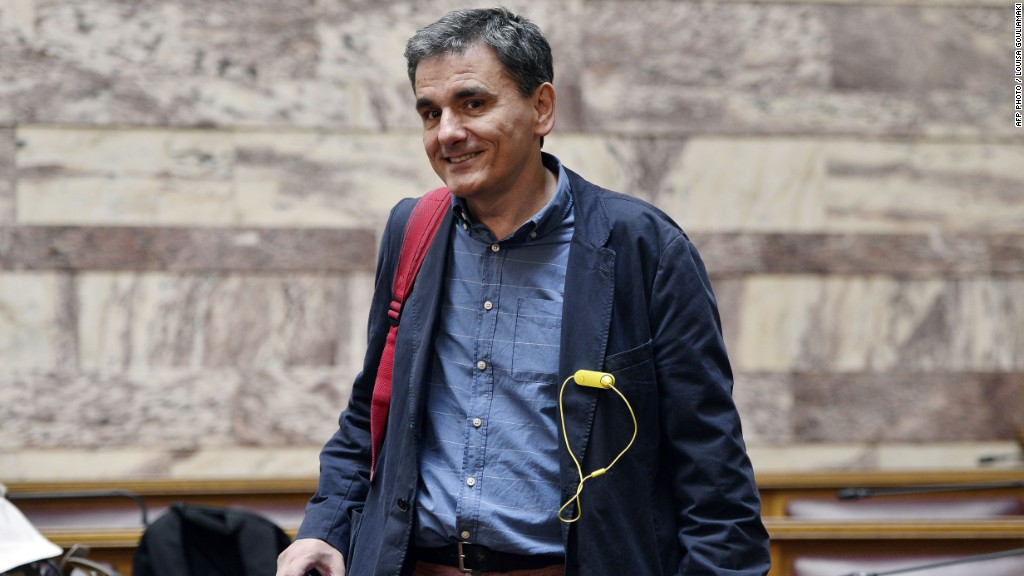
There's a Greek saying that goes, "the wet man is not afraid of the rain."
It doesn't have the right ring in English, but it basically means that things are so bad, they really couldn't get any worse.
For Connie Thomas, who runs a small restaurant with her husband in Athens, it perfectly encapsulates why over 60% of Greeks voted "no" in Sunday's referendum, even though their choice brought their country a step closer to a collapse and its exit from the eurozone. "These people have nothing to lose," she said. "They have no jobs, no money, no savings, that's why they are not afraid to take the risk."
Like many business owners, she and her husband Anthony voted yes in the referendum, choosing the "lesser evil," she said.
Eva Ferentinos, a 60-year old retiree, voted "no." She said the last five years brought Greece down to its knees and she's had enough. She doesn't want any more austerity. But like many others, she wants to continue paying with euros in Greece.
"I hope we'll be in Europe, I want to be in Europe... but we need to get a better program," she said.
She is convinced the two don't contradict each other. In her opinion, Europe has an obligation to help. "I understand that [other eurozone members] want the best for their own countries...but when they see people in this country struggling, they should help," she said.
Ferentinos is not oblivious to the fact that Greece has already received two huge international bailout packages -- worth 240 billion euros -- and is now asking for more money after slipping back to recession.
"We made a lot of mistakes...but that's why we are in Europe, to help each other," she said. In her opinion, Europe is "like a big family." Greece is playing its part too, she said, for example by accepting immigrants from Syria and other war-torn regions. "We give them houses to stay, we give them food. Now Europe should help us."
Now it's Europe's time to decide: Save Greece or not?

"It was an easy question: Do you want more austerity? Of course not," Angeliki Planoudaki, a 27-year old Athenian who voted yes, said. She spent Monday evening trying to understand the vote's result, playing chess on a quiet street in Athens' historical Plaka district.
"The vote is almost meaningless...we need another deal," she said. "They made it about nationalism, they didn't explain the consequences."
But some Greeks seem to understand those consequences very well. Najia Drakia, who campaigned for the "no" vote, is pleased with the result. She wants her country out of the euro -- despite grim scenarios predicted by analysts, who warned Greece's exit from the common currency could lead to collapse in the GDP, sharp devaluation of the new currency, and even higher unemployment.
"We need to declare that we no longer recognize the debts, go back to drachma, and then the government can adjust the exchange rate," Drakia, a 47-year old public servant, said. Only after dropping out of the euro, she said, could Greece return to prosperity.



